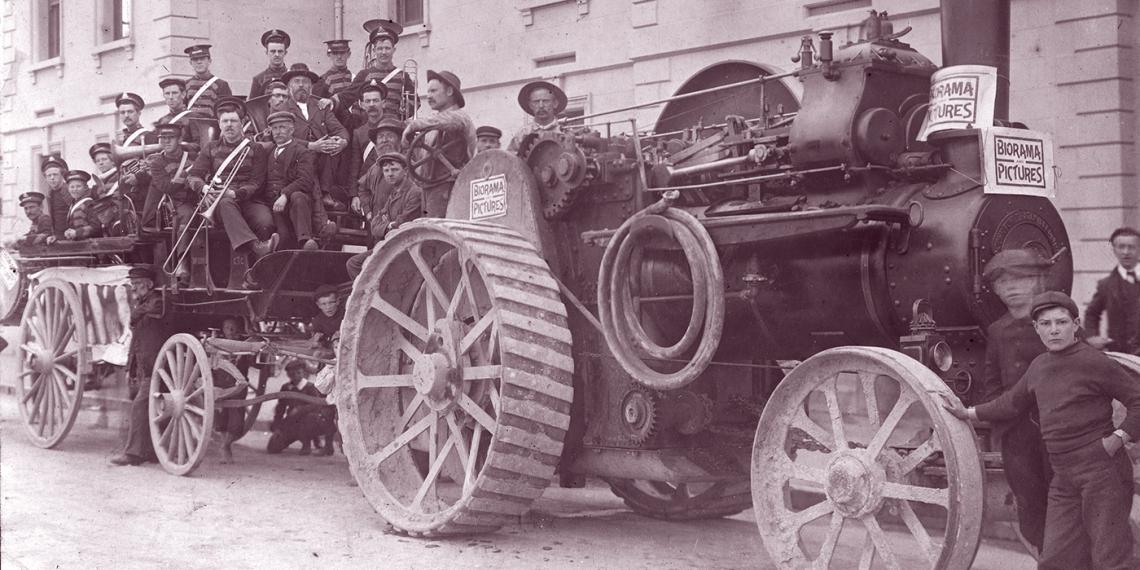You are here
Biorama Company

Joseph Perry became an officer in Dunedin in 1883. While he was manager of the Prison Gate Home in Ballarat, Victoria, Australia, he fitted out a photographic studio and installed a magic lantern (or Limelight as it was called then). His unusual skills were noticed by his superiors and in 1892 Captain Perry was placed in charge of a ‘Limelight Brigade’, who toured around Australasia showing slides on the Bible, The Salvation Army and travel subjects. They drew large crowds when public entertainment was in its infancy. These shows would be supplemented by companies of singers and instrumentalists.
The Limelight Brigade was the origin of the Biorama company, which for years to come would use entertainment to preach the Gospel and raise funds for The Salvation Army from every city and town in the country.
Herbert, third son of founder William Booth, gave Perry free hand to extend the scope of the Limelight Brigade and encouraged him to produce his own films.
Perry filmed The Salvation Army Congress, Melbourne in 1898 and was invited to film the departure of Australian mounted troops for the Boer War. He also filmed the opening ceremony of the first Federal Parliament in 1901. And New Zealand Prime Minister Sedden gave Perry permission to film the visit of the Duke and Duchess of York in Wellington.
Herbert Booth and Joseph Perry collaborated in a remarkable production, ‘Soldiers of the Cross’, often cited as the world’s first feature film but, in reality, a combination of two hundred coloured slides and a thousand meters of moving film. A special script was usually delivered by Herbert in person, and there was a musical accompaniment arranged for a brass band and choir. The courage displayed by the early Christian Martyrs during the persecution of Emperor Nero was the theme of this production, and it caused a sensation when presented throughout New Zealand in 1901.